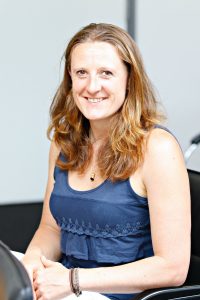RESEARCH: Professor Emily Jefferson - pushing boundaries
After cycling from New Zealand to the UK Emily Jefferson found herself in Scotland with a job at the University of Dundee Health Informatics Centre.

Soon afterwards she became director of the four-person unit. Since then she has overseen its expansion into a 60-strong team providing expertise in health informatics, data science, data management, governance and machine learning to over 700 research projects.
Along the way she has also been appointed a professor and is pushing back the boundaries of health data science. One example is her interest in developing the next generation of safe havens – where researchers are free to analyse datasets using their own software but without compromising security.
Her research at the university’s School of Medicine is centred on data-driven health and digital applications to improve treatment methods.
Ultimately her fascination is in creating the means for researchers to swiftly, securely and seamlessly pursue projects to improve healthcare and ultimately save lives.
Prof. Jefferson, who is originally from England, has a long association with Scotland which she says is an excellent place for health data scientists due to its eminence in the life sciences – a field in which universities such as Dundee are world leaders.
Her undergraduate degree was at St Andrews. It was there that she taught herself programming and realised that she wanted a future in computing rather than lab work. Following a bioinformatics doctorate and a spell as a postdoctoral researcher she returned to England and jobs in the finance sector.
These taught her a great deal about best-practice and the use of big data, but she missed working on projects that were about human welfare rather than simply raising profits. After taking time out to travel she began her epic bike ride. On the way she began making calls to find work and her life turned full circle with a return to Dundee.
Nowadays she is committed to helping create clearer and well-rewarded career paths so young data scientists opt for the health sector rather than heading for other industries. In future she hopes that the medical world will give the same recognition to skilled health data researchers as it does to hospital consultants.
Emily’s career path:
- BSc in Biochemistry, St Andrews University
- PhD in Bioinformatics, University of Dundee
- Postdoctoral research assistant, University of Dundee
- Finance sector consultant and project director
- Director of University of Dundee Health Informatics Centre
- Professor of Health Data Science, University of Dundee.
